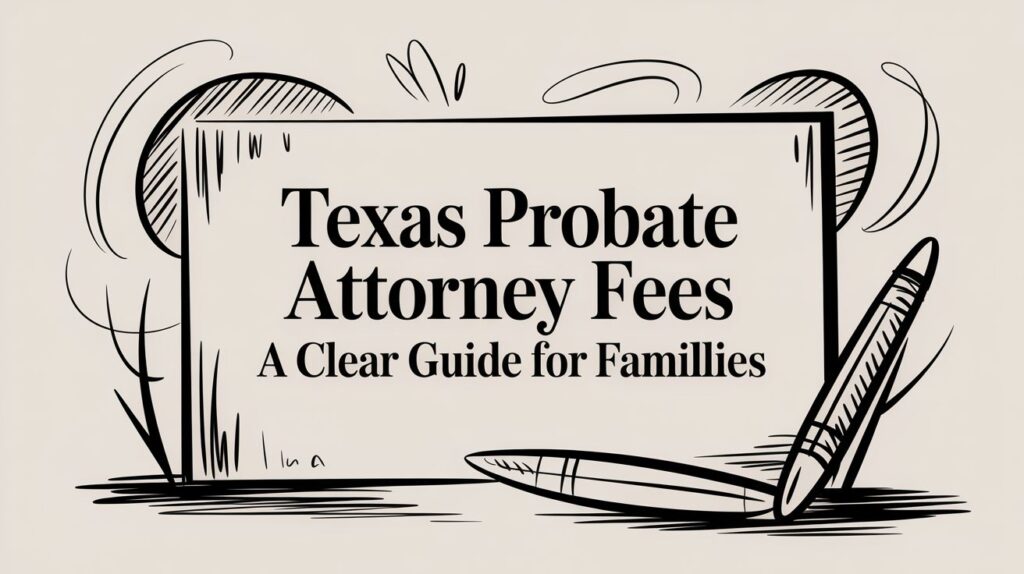When a loved one passes away, the question of what happens to their debts often looms large. In Texas, the probate process addresses this crucial issue, determining how debt is handled and ultimately resolved. Understanding the intricacies of debt management in Texas probate can alleviate some of the stress during an already difficult time. This comprehensive guide will delve into how debts are treated during probate in Texas, providing clarity and insight for executors, beneficiaries, and anyone navigating this complex process.
Understanding Probate in Texas
What Is Probate?
Probate is the legal process through which a deceased person’s estate is administered, assets are distributed, and debts are paid. In Texas, probate is overseen by the county court in the jurisdiction where the decedent resided. The process ensures that the decedent’s final wishes, as expressed in their will, are fulfilled and all legal obligations, including debt repayment, are fulfilled.
Initiating Probate

The probate process begins with applying to probate the will. This application is typically filed by the executor named in the will, but the court may appoint an administrator if there is no will. Once the will is validated and the executor or administrator is appointed, identifying and settling debts begins.
Identifying and Categorizing Debts
Types of Debts
Debts can be broadly categorized into secured and unsecured debts. Understanding these categories is crucial for executors:
- Secured Debts: These are debts backed by collateral, such as a mortgage on a home or a car loan. If the debt is not paid, the creditor can seize the collateral.
- Unsecured Debts: These include credit card debts, medical bills, and personal loans. They are not tied to any specific asset, making them more difficult for creditors to collect if the estate needs more funds.
Other Financial Obligations
In addition to secured and unsecured debts, other financial obligations may need to be addressed, such as taxes, including property taxes and income taxes, and administrative costs associated with settling the estate.
The Role of the Executor in Managing Debt
Inventorying the Estate
One of the executor’s first tasks is to take a comprehensive inventory of the decedent’s assets and liabilities. This involves identifying all assets, such as real estate, bank accounts, investments, personal property, and all outstanding debts and obligations.
Notifying Creditors
Texas law requires executors to notify known creditors of the decedent’s passing. This notification provides creditors with the opportunity to make claims against the estate. The executor must also publish a notice to creditors in a local newspaper, which serves as a public announcement and invites any unknown creditors to come forward.
Paying Debts During Probate
Order of Payment
The Texas Estates Code dictates how to pay debts and obligations from the estate’s assets. This hierarchy ensures prioritizing certain debts over others:
1. Funeral Expenses and Last Illness Costs: These are typically prioritized and paid first.
2. Expenses of Administration: The next items in line include administering the estate’s costs, such as executor fees, attorney fees, and court costs.
3. Secured Debts: Borrowers pay mortgages and other secured debts, utilizing the corresponding collateral frequently to fulfill these obligations.
4. Taxes: Federal and state taxes, including property and income taxes, are given precedence.
5. Unsecured Debts: Any remaining assets are used to pay off unsecured debts.
Selling Assets
If the estate lacks sufficient liquid assets to cover its debts, the executor may need to sell some of the decedent’s property. This could include selling real estate, vehicles, or other valuable items. In this process, the sales proceeds actively pay off the debts according to the law’s specified order.

Dealing with Insolvent Estates
What Is an Insolvent Estate?
An insolvent estate is one where the liabilities exceed the assets. Not all creditors will fully receive payment in such cases, and some debts may remain outstanding.
Prioritizing Payments
In an insolvent estate, the executor must prioritize payments according to the Texas Estates Code. Secured creditors and higher-priority debts will be first in line for payment, while unsecured creditors may receive only partial or no payment if the estate’s assets are insufficient.
Special Considerations in Texas
Homestead Exemption
Texas law grants a homestead exemption that can shield the decedent’s primary residence from creditors’ attempts to sell it to satisfy specific debts. This exemption ensures that the surviving spouse and minor children have a place to live, even if the estate is insolvent. However, this protection does not extend to secured debts like a mortgage on the homestead property.
Family Allowance
The Texas Estates Code also allows for a family allowance, which provides financial support to the surviving spouse and minor children during the probate process. This allowance is considered a priority and is paid before most other debts.
Exempt Property Set-Aside
Under Texas law, certain personal property is exempt from creditors’ claims. The Texas Penal Code sets aside exempt property, which may include items like furniture, clothing, and tools of the trade, for the benefit of the surviving spouse and children. These exemptions help ensure that the family retains essential items necessary for daily living.
Resolving Disputes
Contesting Claims
During probate, disputes may arise between the executor and creditors or among beneficiaries regarding the validity and payment of debts. Creditors may file claims that the executor deems invalid or excessive. In such cases, the executor can contest the claims in probate court. The court will then determine the legitimacy of the claims and the appropriate payment, if any.
Beneficiary Disputes

Beneficiaries may also dispute the executor’s handling of debts and distribution of assets. They might believe that they should not pay certain debts or that someone is unnecessarily selling assets. To resolve these disputes, beneficiaries can file objections with the probate court, which will review the executor’s actions and make a ruling.
Tax Considerations in Probate
Federal Estate Taxes
While Texas does not have a state estate tax, the executor must still address federal estate tax obligations. Estates exceeding a certain threshold may be subject to federal estate taxes. The executor must file the appropriate tax returns and ensure that they pay any taxes due from the estate’s assets.
Income Taxes
You must file the decedent’s final income tax return for the year of their death. The executor is responsible for gathering the necessary financial information, filing the tax return, and paying any taxes owed. Additionally, if the estate generates income during the probate process (e.g., from rental properties or investments), the executor must file income tax returns on behalf of the estate.
Seeking Professional Assistance
Hiring an Attorney
Given the complexities of probate and debt management, it is often advisable for executors to seek the assistance of an experienced probate attorney. An attorney can provide valuable guidance, help navigate legal requirements, and represent the executor in court if disputes arise.
Financial Advisors and Accountants
Executors may benefit from consulting with financial advisors or accountants in addition to legal advice. These professionals assist with tax filings, asset valuations, and financial planning. They manage the estate efficiently and comply with all applicable laws.
Real-Life Examples and Case Studies
Case Study: The Johnson Family
Consider the case of the Johnson family. When Mr. Johnson passed away, he left behind a sizable estate that included a family home, several investment properties, and various debts, including a mortgage and credit card bills. As the executor, Mrs. Johnson faced the daunting task of managing these assets and liabilities. She carefully inventoried the estate, notified creditors, and sought professional advice. By doing so, she successfully navigated the probate process, paid all debts, and distributed the remaining assets to the beneficiaries.
Example: Dealing with Insolvent Estates
In another example, Mr. Smith passed away with significant debts and limited assets. The authorities deemed his estate insolvent, meaning it lacked enough assets to cover all the liabilities. The executor, Ms. Garcia, prioritized the debts according to Texas law, paying funeral expenses and administrative costs first, followed by secured debts and taxes. Unfortunately, there were insufficient funds to fully satisfy the unsecured creditors, who received only partial payments. Through transparent communication and diligent record-keeping, Ms. Garcia managed the difficult situation with integrity, ensuring compliance with the legal requirements.
Contesting Creditor Claims and Beneficiary Disputes in Texas Probate
The journey of settling debts in Texas probate can be intricate and challenging, but understanding the process can provide much-needed clarity and peace of mind. Executors manage the decedent’s estate, identify debts, prioritize them, and pay them according to Texas law. By following the prescribed steps and seeking professional guidance when necessary, executors can confidently navigate the probate’s complexities, honoring the decedent’s wishes while fulfilling their legal obligations.
Navigating the labyrinth of debt in Texas probate is no small feat. Still, with careful planning, diligent management, and a thorough understanding of the process, executors can successfully steer the estate through these turbulent waters. They provide invaluable support and closure to the decedent’s loved ones, ensuring they write the final chapter of the decedent’s financial life with integrity and respect. By understanding the nuances of debt prioritization, exemptions, and the legal framework governing probate in Texas, executors can fulfill their responsibilities effectively, honoring both the decedent’s wishes and the legal obligations that come with this important role.








